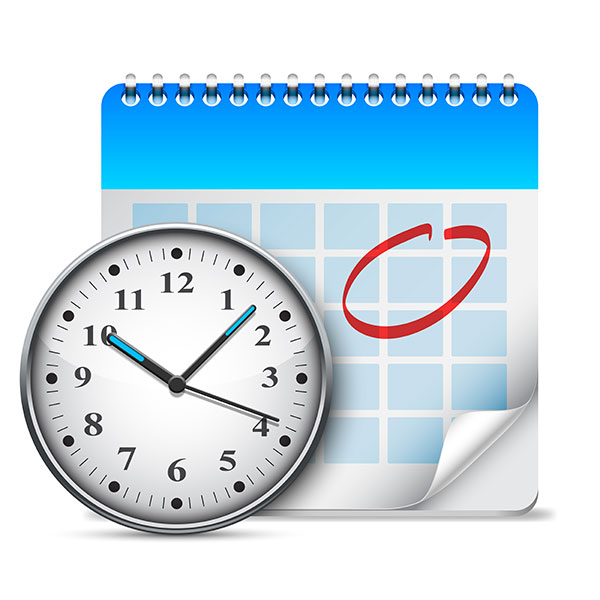30 Time Management Tips for Smarter Business
Time management is potentially one the most important skills we should all possess. Yet it all too often gets pushed to the side in a somewhat ironic twist of life because we are all too busy.
Time management is important because employing this critical skill will ultimately allow us all to be more efficient, more productive and improve both our work and personal lives.

- Learn to honest with yourself, you will become a better decision maker for it.
- Be ruthless when prioritising tasks.
- Turn your email off. If a task or conversation is that important then use the phone or go and see them, especially if you are in the same building or room.
- Create a to-do list and order it by priority. Be disciplined when following it and keeping it up to date. Writing all of your jobs down will make everything seem less overwhelming.
- If you give someone a task then provide a completion date, it will help you both manage the task effectively.
- If you receive a task from someone without a deadline ask for one.
- If something is unrealistic or clashes with existing priorities, don’t be afraid to bring this up. The clearer everyone is on workload, the easier it is to manage.
- Take a break! This may sound counter intuitive to what we are trying to achieve but a rested mind is a more productive one.
- Eat properly and stay hydrated. As above, give your body what it needs to function and you will achieve more.
- Learn your body clock. I have been hearing a lot of talk about the 5AM club, where people start their day at 5 every morning and check their emails by 05:30. It may work for some but not for all. We all have times when we function at our peak, learn when yours are.
- If you find yourself procrastinating, be honest with yourself as to why. Is the task too hard, boring or overwhelming? Are you tired or hungry? Once you know the problem you can create a solution.
- Does a solution already exist? Are you trying to reinvent the wheel? For example, LinkedIn is a great business tool but could you use software to automate your scheduling and save you time?
- Record how long a task takes you and consider why it took that long; what could be done to improve efficiency if you have to do it again?
- Do you need to attend that meeting? What input will you have and ask yourself how relevant the content is to you?
- Identify your strengths and weaknesses and work around them. If you have honestly highlighted your weaker areas, consider what you can do to address them. For example, can tasks be outsourced to an agency or contractor who specialises in that area?
- Use your calendar to manage your time. Book time slots and plan your day in advance.
- Review how the long the task took against what you scheduled and then adjust the calendar entry to match the actual time. This will help with future planning.
- If the task feels like it has come to a stop for reasons outside your control, then accept that you have done all you can and do not let it become a source of stress. Let the parties you are waiting on know what you need and move onto the next task while you wait.
- Keep a clear head. Allowing yourself to become stressed only clouds your mind and hinders you. Instead, learn to focus yourself positively and deliver what is needed.
- Don’t be afraid to ask for help when it is needed. Reaching out to a colleague who could help may help you to crack that problem in half the time.
- You can’t be in two places at once, so keep your schedule up to date.
- If you have to head out of the office then pre-plan your journey.
- If you are in the car, avoid taking important calls whilst driving (via a hands free). You won’t be able to take notes and may miss critical information or worse yet, stop concentrating on the traffic around you and where you are going. If you must use your phone in the car invest a Bluetooth system and learn how to use it.
- Set a stop time every day. This will help you to schedule effectively, enjoy more personal time and help to avoid burning out.
- Allow for the unexpected, leave a percentage of your day or week to deal with whatever curveballs that may come your way.
- Aim to be everywhere five minutes early to give you a chance to gather your thoughts and compose yourself, especially after a long journey.
- Be punctual. No one likes to be kept waiting.
- Learn to value your time and that of others and they too will respect that your time is valuable.
- Keep your goals in the front of your mind. Be confident that what you are working on is working towards that goal.
- Have fun! Enjoying what you do will ensure that you work harder and stay focused on the job at hand.
Ultimately, time management comes down to how you approach every day. Time is a valuable commodity and ticks by regardless of what we do with it. Wasted time cannot be claimed back or restarted, so treat it with the respect such a valuable commodity deserves and you will start to get the most form everything you do.
Tags: sales, time management

